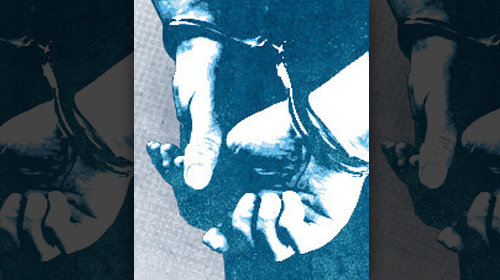
Today, the U.S. has the highest incarceration rate of any country in the world. With over 2.3 million men and women living behind bars, our imprisonment rate is the highest itÔÇÖs ever been in U.S. history. And yet, our criminal justice system has failed on every count: public safety, fairness and cost-effectiveness. Across the country, the criminal justice reform conversation is heating up. Each week, we feature our some of the most exciting and relevant news in overincarceration discourse that weÔÇÖve spotted from the previous week. Check back weekly for our top picks.
In The Nation, a federal district judge offers a powerful critique of federal drug sentencing. The reality of Judge BennettÔÇÖs drug docket is at once absurd and tragic. Aside from a handful of ÔÇ£drug kingpinsÔÇØ, the vast majority of drug trafficking defendants are ÔÇ£small-time addictsÔÇØ facing five, 10, or more years in federal prison for infractions like buying and delivering cold medicine to meth cooks. Judge Bennett laments the irrational, disproportionate severity of mandatory minimums, and heÔÇÖs not alone: in a 2010 survey of federal district court judges, 62 percent said mandatory minimums were too harsh.
The U.S. Dept. of Justice filed a lawsuit against Meridian, Miss., Lauderdale County and its judges, and the state of Mississippi alleging that the defendants systematically violate the due process rights of juveniles. According to the , children in Meridian are systematically incarcerated for allegedly committing minor offenses, including school disciplinary infractions; are incarcerated for days at a time without a probable cause hearing; and are consistently denied representation or a Miranda warning.
Shane Bauer was one of the that recently spent between one and three years in Iranian prison. Having experienced the debilitating and dehumanizing effects of solitary confinement for himself, Mr. Bauer looked at how we use the practice in California. He describes how little it takes to be placed in solitary confinement, how hard it is to get out, and how long many prisoners spend there.
The Austin Chronicle explores Travis CountyÔÇÖs experiment to release more defendants on ÔÇ£personal bondÔÇØÔÇöthat is, their word. The county's adult probation and pretrial services department is conducting more extensive screening of defendants and issuing recommendations to judges about which defendants should be released without bail. So far, results are promisingÔÇöin 2010, screened defendants released only on their word were more likely to appear in court than were defendants released on commercial bond.
A number of attend a criminal convictionÔÇöyou can be barred from certain employment, denied public assistance, or denied the right to vote. To help defense attorneys minimize those consequences, the National Association of Criminal Defense Lawyers recently released a state-by-state guide to restoring the rights lost because of a criminal conviction. The guide includes an interactive map and side-by-side comparisons of law and practice.
Learn more about overincarceration: Sign up for breaking news alerts, , and .
